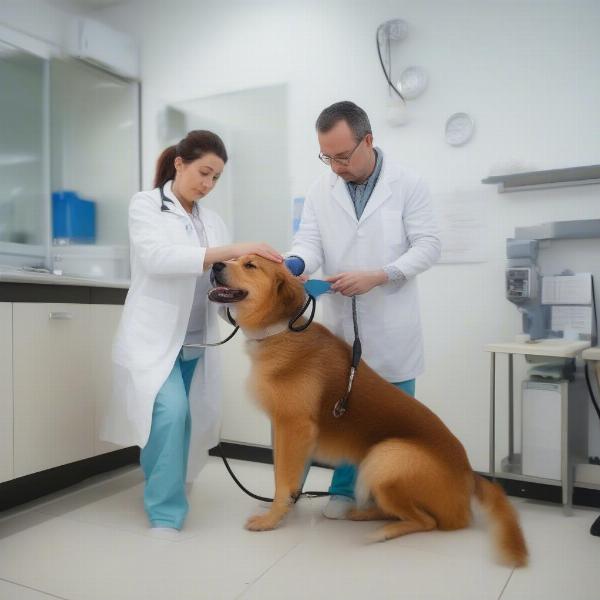Paxxin, a common misspelling of “paxin,” isn’t a recognized medication or product specifically designed for dogs. It’s crucial to avoid giving your dog any medication not prescribed by a veterinarian. If you’re searching for information about a specific treatment for your dog, consult with your vet for accurate diagnosis and treatment options. They can advise on appropriate medications and dosages based on your dog’s individual needs and health condition. This article will discuss the importance of proper medication administration for dogs and highlight general health concerns and solutions.
Understanding your dog’s specific health needs is paramount. Never self-diagnose or self-medicate your dog. While online resources can offer helpful information, they can’t replace the expertise of a trained veterinary professional. Misdiagnosis and improper medication can lead to serious health complications, or even be fatal.
Common Health Concerns in Dogs and Seeking Veterinary Advice
Dogs, like humans, are susceptible to various health issues. Some common health problems in dogs include skin allergies, ear infections, digestive problems, arthritis, and heartworm. If you notice any changes in your dog’s behavior, appetite, or physical condition, it’s essential to consult with your veterinarian promptly. Early diagnosis and treatment can significantly improve your dog’s prognosis and quality of life.
 Veterinarian examining a dog in a clinic
Veterinarian examining a dog in a clinic
Safe Medication Administration for Dogs
If your veterinarian prescribes medication for your dog, it’s vital to administer it correctly. Follow their instructions meticulously regarding dosage, frequency, and method of administration. Some medications are available in various forms, such as tablets, capsules, liquids, or injections. Your veterinarian will recommend the most appropriate form based on your dog’s condition and individual needs.
The Importance of Preventative Care
Alongside appropriate medication when necessary, preventative care plays a crucial role in maintaining your dog’s health. Regular check-ups, vaccinations, parasite prevention, and a healthy diet and exercise regime are essential components of responsible dog ownership.
Conclusion
While “paxxin for dogs” doesn’t refer to a known medication, ensuring the health and well-being of your canine companion is crucial. Always consult with a qualified veterinarian for any health concerns and follow their guidance regarding medication and treatment. Preventative care and responsible pet ownership are essential for a long, happy, and healthy life for your dog.
FAQ
- What should I do if I think my dog needs medication? Consult your veterinarian. Never give your dog medication without professional advice.
- How can I find a reputable veterinarian? Ask for recommendations from friends, family, or local animal shelters. Online directories can also be helpful.
- What are the signs of a healthy dog? A healthy dog typically has a good appetite, bright eyes, a shiny coat, regular bowel movements, and is active and playful.
- How can I prevent my dog from getting sick? Regular vet check-ups, vaccinations, parasite prevention, a balanced diet, and regular exercise are key to preventative care.
- What should I do if my dog has an adverse reaction to medication? Contact your veterinarian immediately.
ILM Dog is your trusted resource for expert advice on all aspects of dog care and well-being. From breed selection and puppy care to senior dog care and training, we provide practical, evidence-based information to help you nurture your canine companion. We specialize in breed selection, health and medical care, training and behavior, nutrition, grooming, and products and accessories. Contact us for expert advice! Email: [email protected] Phone: +44 20-3965-8624 Visit ILM Dog for more information.